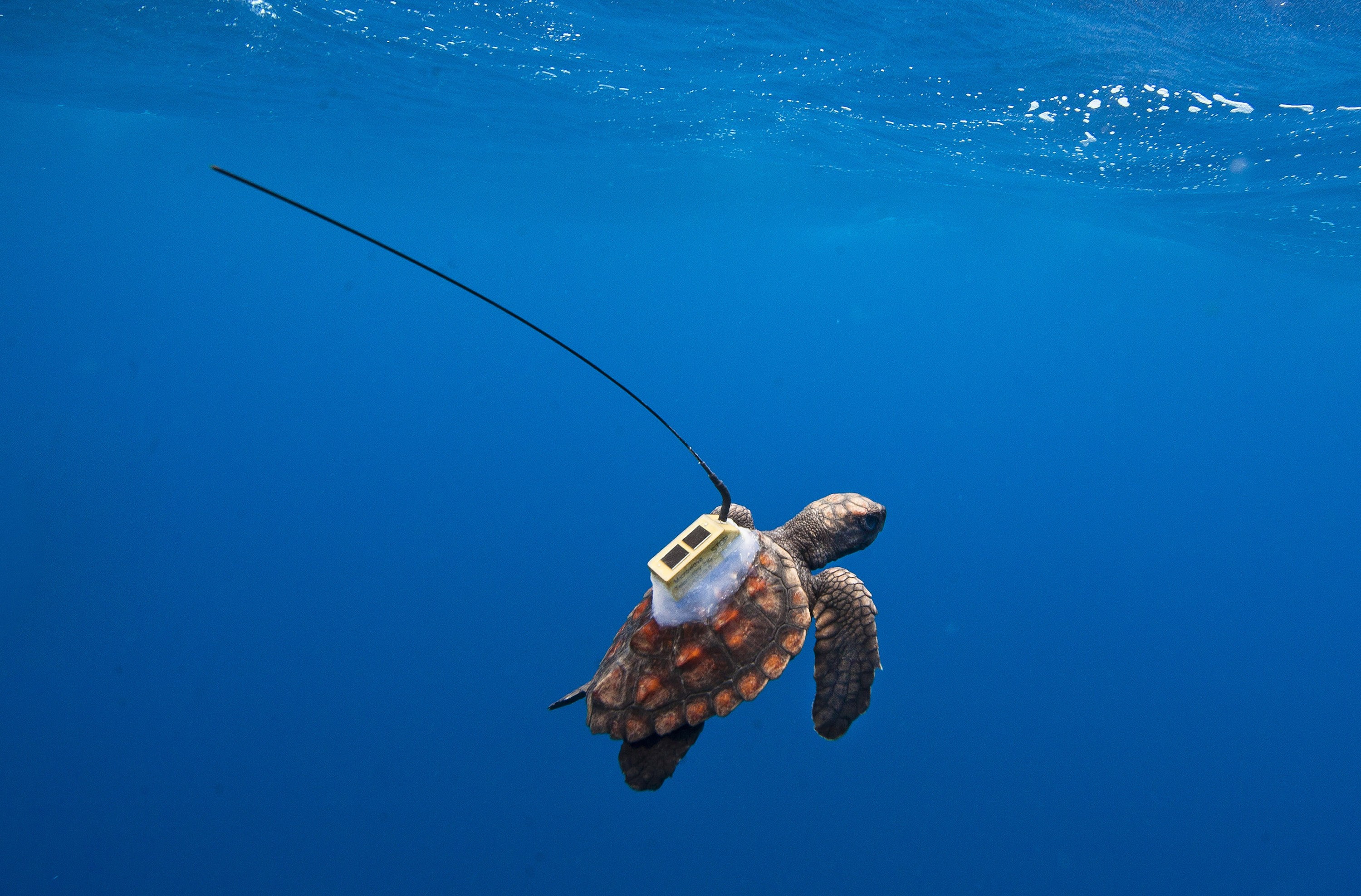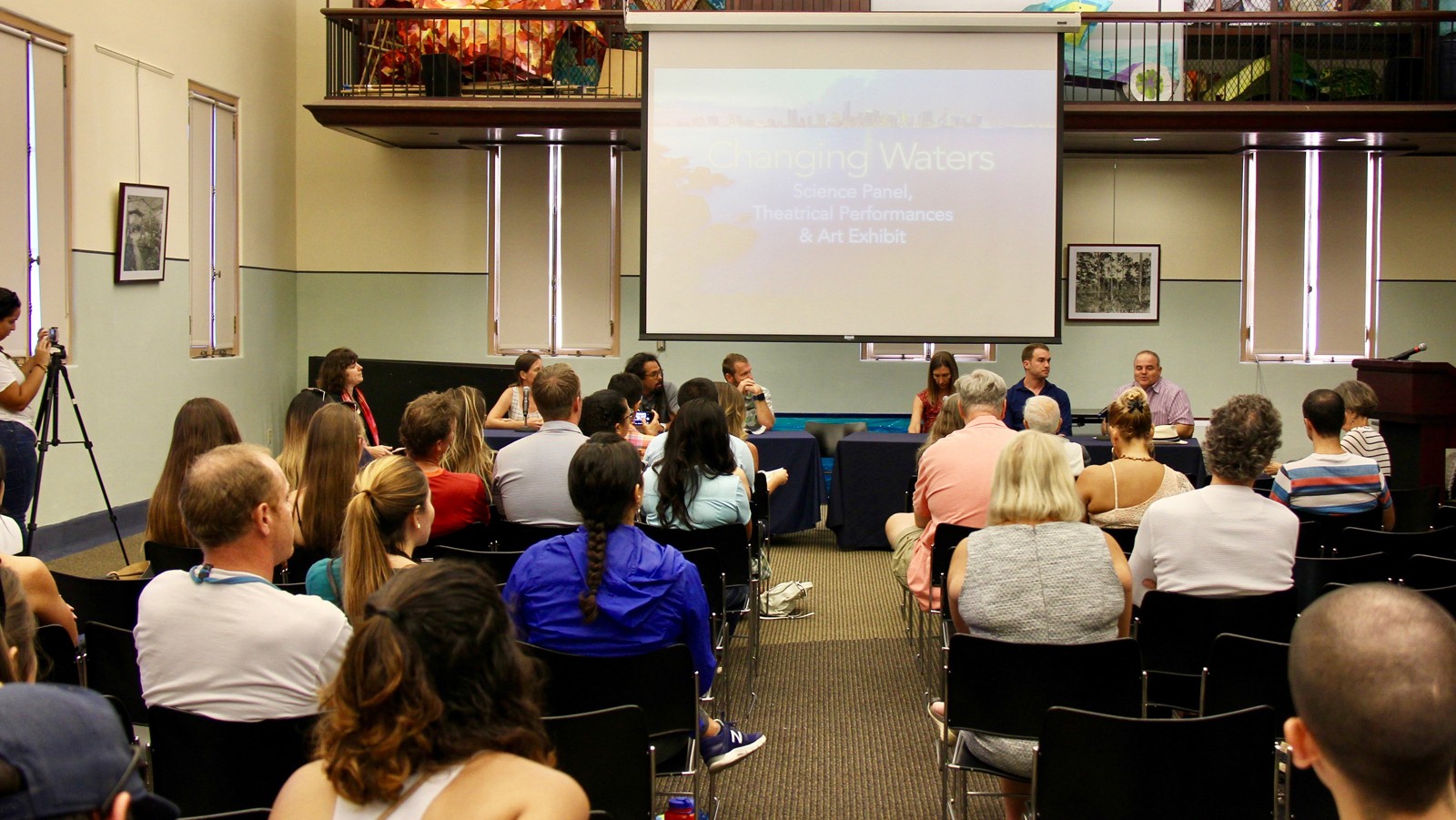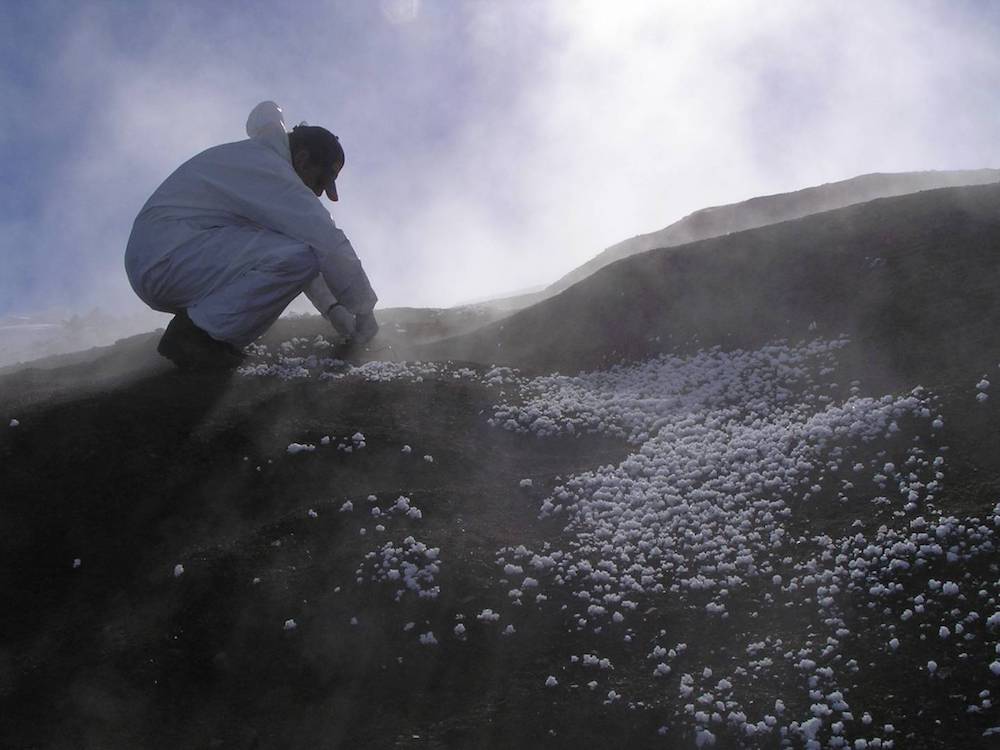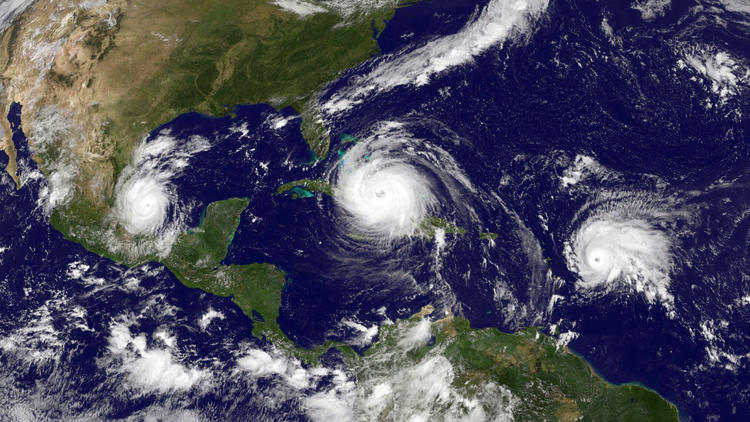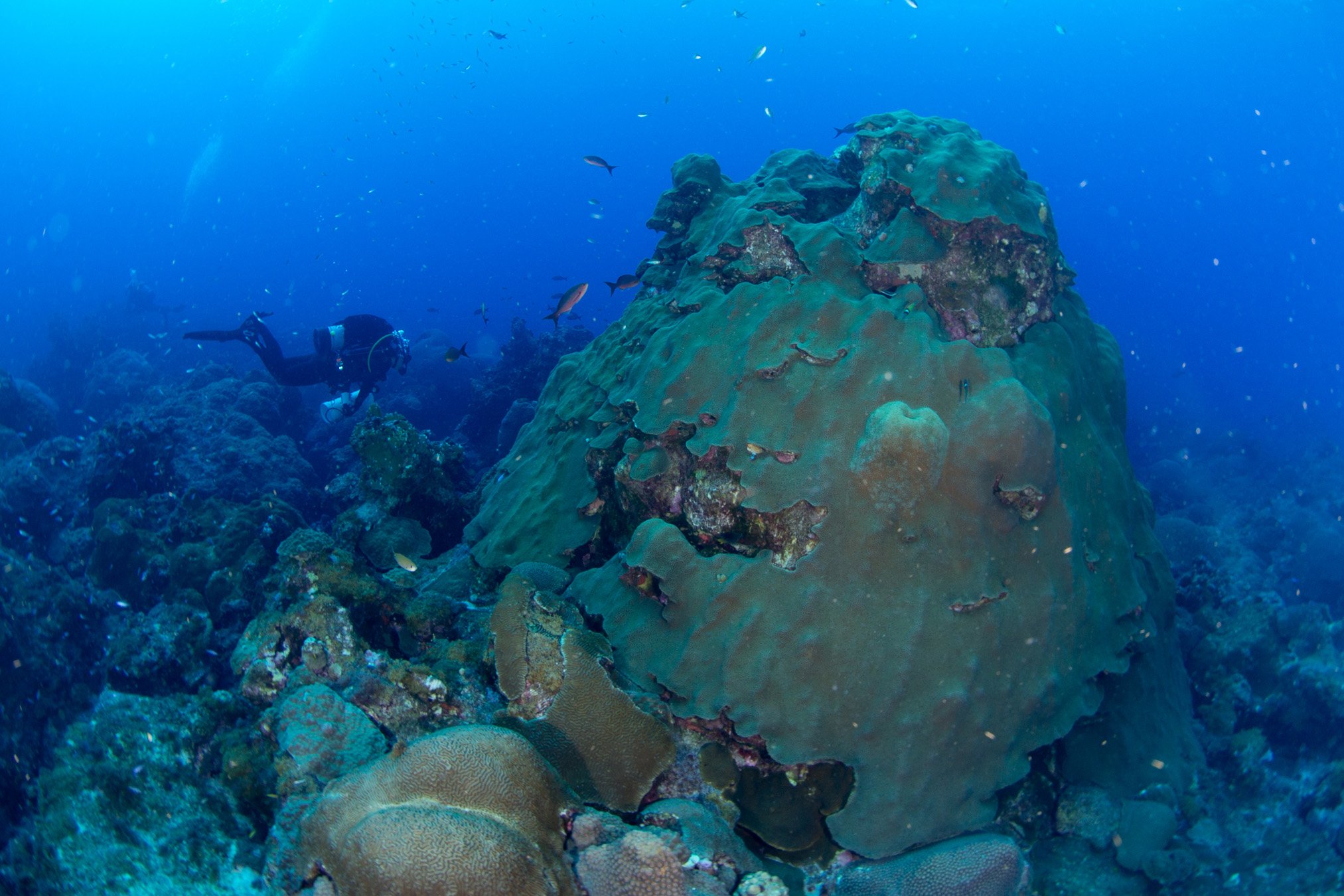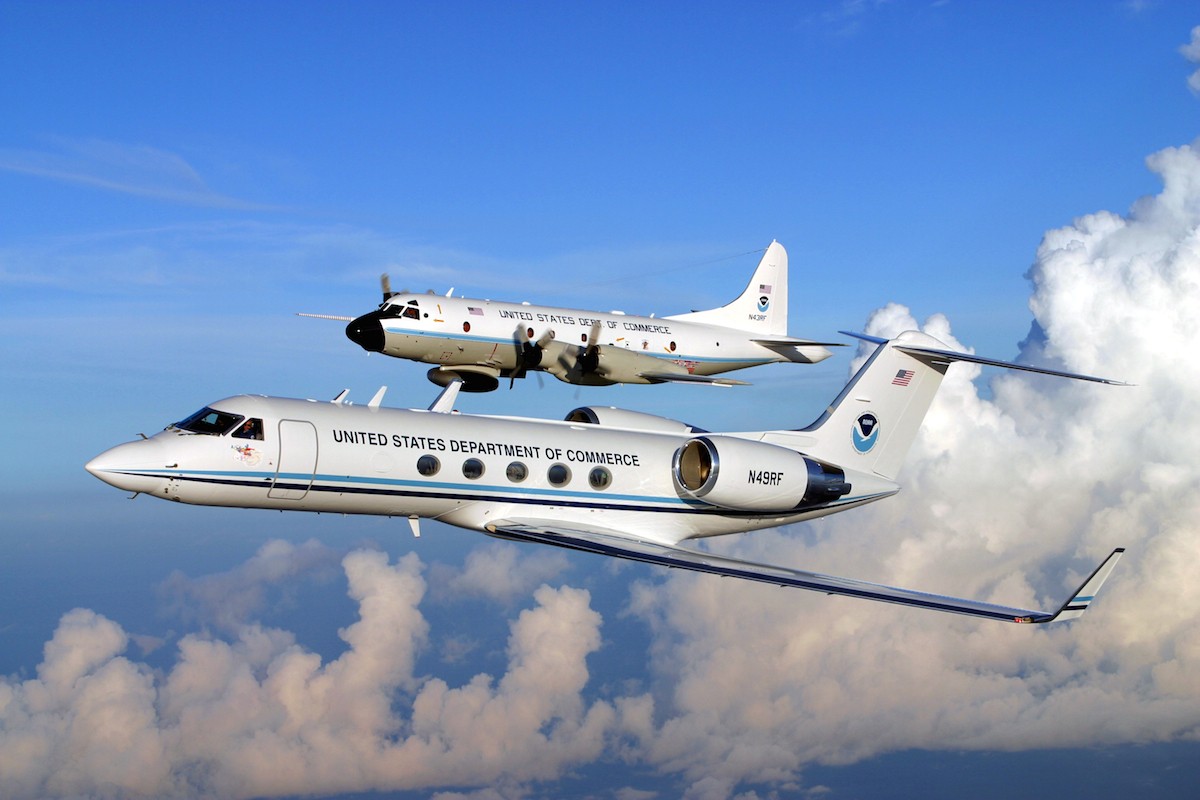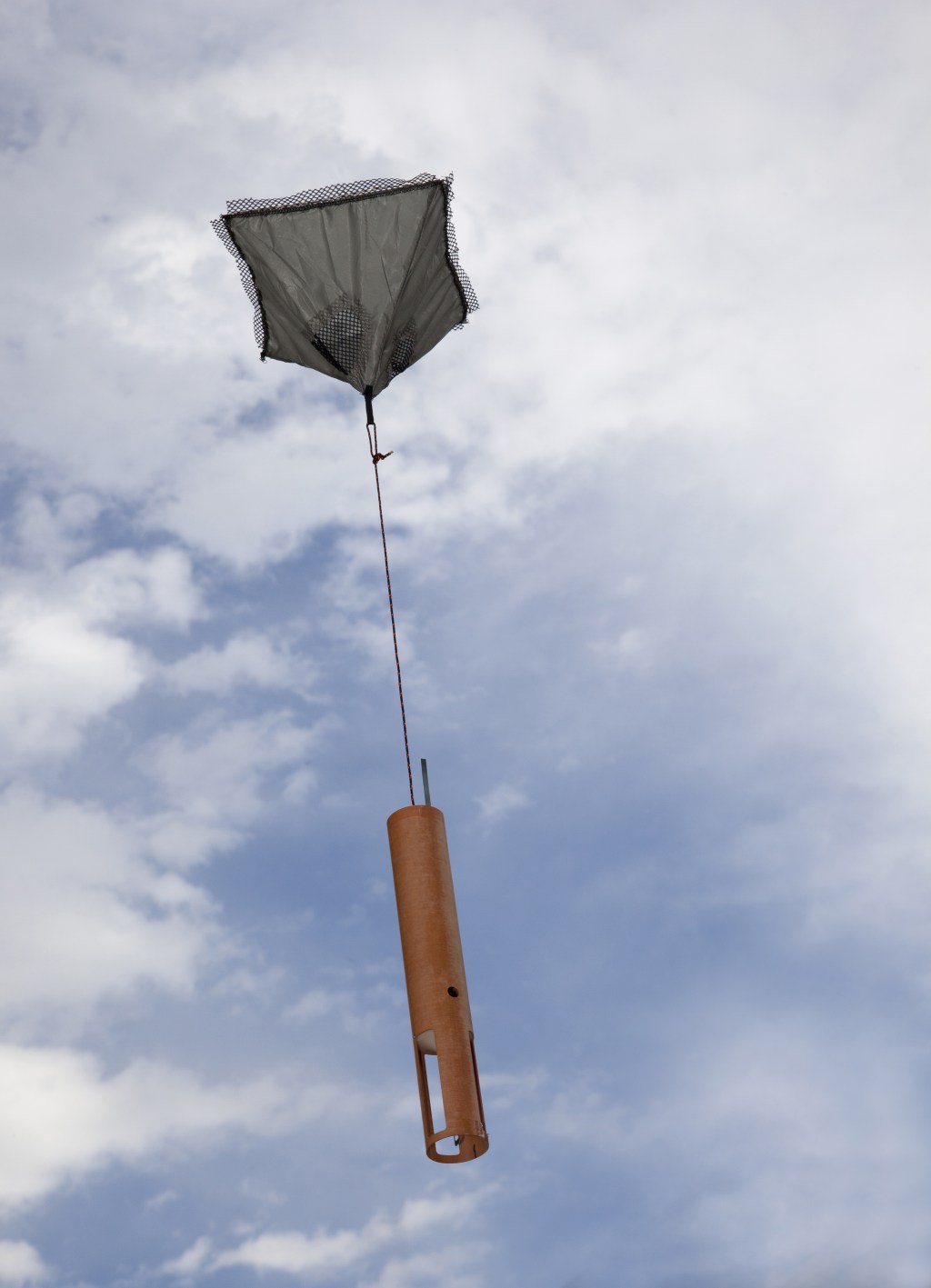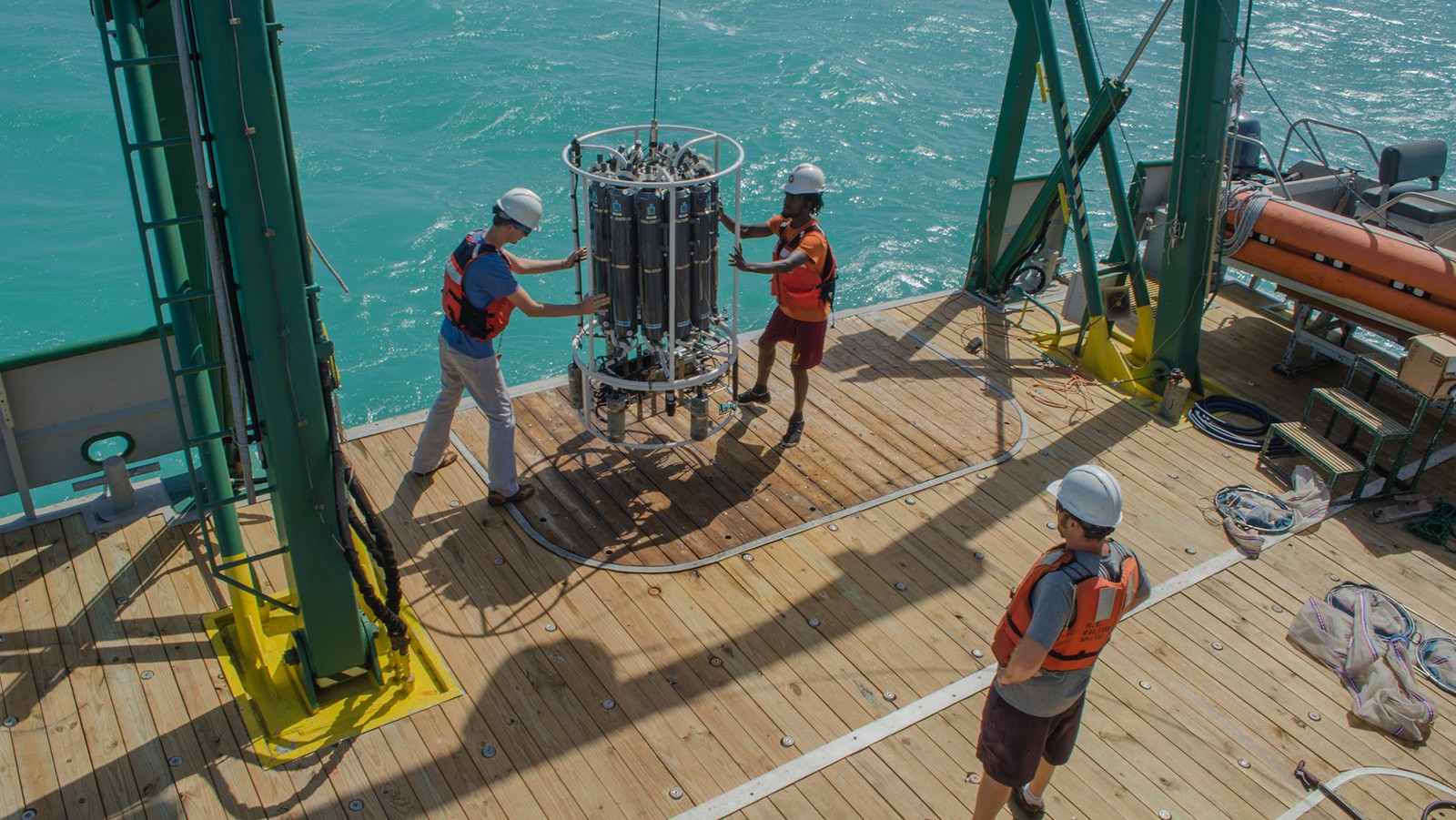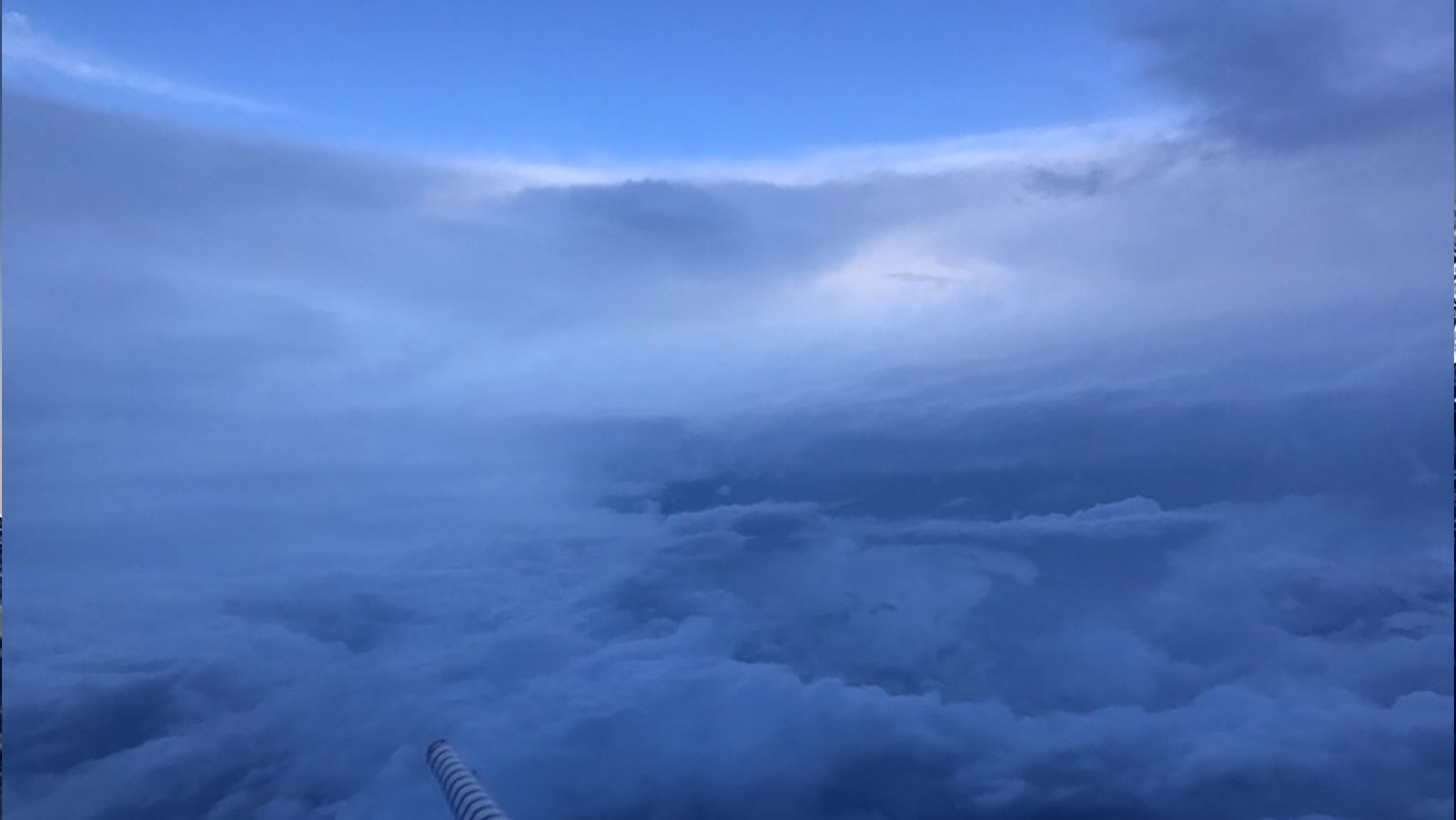Satellite Tracking Provides Clues About South Atlantic Loggerhead ‘Lost Years’
The behavior and movement of sea turtles during their first few years at sea, known as the ‘lost years’, remains largely a mystery. Researchers from NOAA-AOML, NOAA Fisheries, University of Central Florida, and Projecto TAMAR recently collaborated on a study to explore the mechanisms of dispersal in Brazilian loggerhead turtles, to fill in some of these important early life history gaps. A previous study conducted in the Gulf of America debunked the historic belief that young sea turtles rely solely on riding currents as a passive mechanism of dispersal. This latest study uncovers new drivers behind the travels of young sea turtles, suggesting there may be more of an ecological implication behind their behavior than previously realized.
